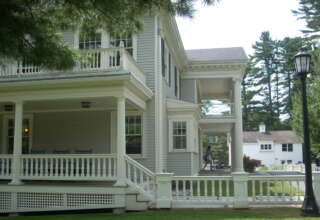
Psychopathy as Behavior Not Aligned with “Polite” Society
In Nineteenth and early Twentieth Century Europe and, in particular, 19th and early 20th Century England (the Victorian era), there was a strong (often suffocating) emphasis on decorum and decency. While this emphasis was certainly present throughout European history (especially with the introduction of strict Protestant rule in many countries), there was a new brand of formality and a new set of informally observed and reinforced rules about etiquette and manners.
Public and Private Lives
The astute American social commentator, Richard Sennett (2017), captured the essence of this shift in his book about The Fall of Public Man. He noted that prior to the 18th Century the residents of cities in Europe would dress up in private—but remain quite casual in public. With the filth and squalor of most European cities, it made sense that one did not wear formal clothes when treading through muddy streets and stepping over the waste products being thrown onto the streets from windows and doors. Sennett noted that even at public events (such as the theater), citizens would engage in transparent acts—such as yelling at the actors or throwing tomatoes at entertainers they didn’t like (we see the remnants of this behavior in our contemporary, but nostalgic, replay of “melodramas”).
Conversely, we know that citizens dressed quite formally in private—at least if they had the financial means to dress up. Even the children were adorned with formal attire (small versions of their parents). Formal place settings were always arranged at the table located in the dining room. There was no equivalence to sitting around the TV set with lap trays and fast food cuisine. Care was taken by the gentlemen and gentlewoman in applying the proper makeup (heavily used by both women and men) and perfumery (needed given the lack of frequent bathing).
According to Sennett, all of this began to change during the 18th Century. The public man, who had been quite informal, began to become much more guarded and formal. He (and she) dressed up before venturing out into the public world—going to work, shopping or meeting with friends. In the public sites of entertainment, the lights were dimmed in the audience and spotlights were placed specifically on the actors and entertainers. The audience was to remain silent, except for applause. Hissing, booing and vegetable tossing were not allowed. Life within the home likewise began to change. Members of the family began to dress down and dinner became a much more relaxed affair. While citizens of 18th and 19th Century Europe were not quite ready for sweatpants or TV dinners, they were ready for less makeup and more informal dinners (with even a few leftover meals). The public man had become private and the private man had become public.
There was a particularly intriguing observation made by Sennett with regard to this reversal in roles. He suggested that there was one class of citizens who did remain quite open in public. These were the men and women who had become famous – as actors, politicians, sports heroes, etc. While these famous people usually were rewarded with great wealth and power (formal or informal), they had to pay a price: they became “celebrities” and in this capacity had to forfeit any vestige of a private life.









